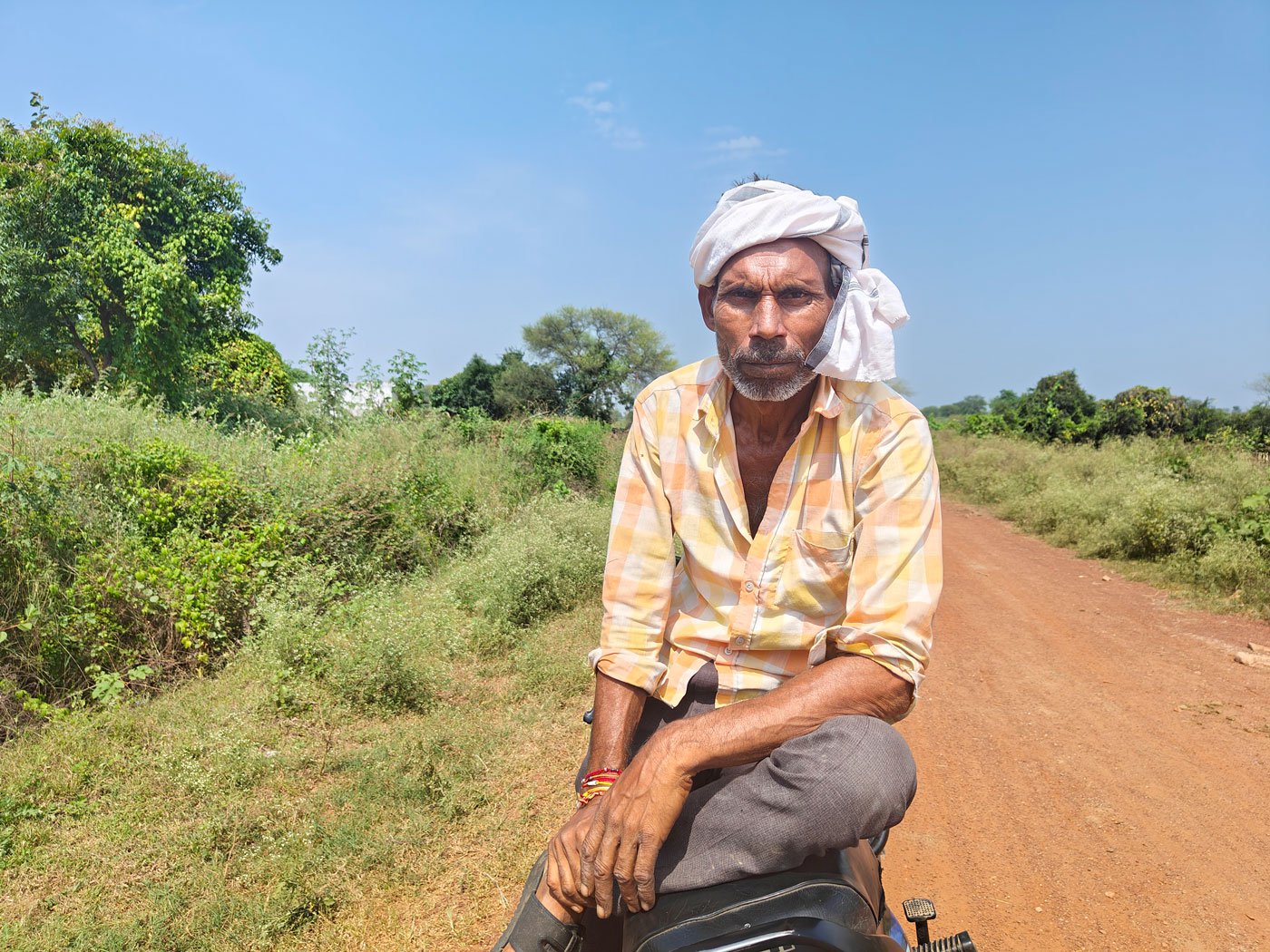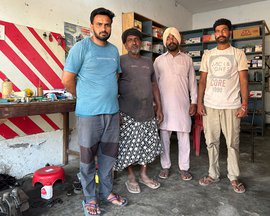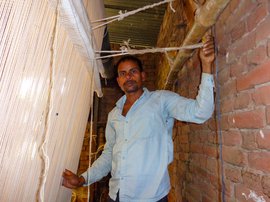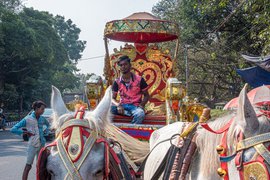Ashok Jatav is a dead man walking.
The 45-year-old wakes up every morning like any other man. He goes to work and toils on the farms of others like any other labourer. He returns home in the evening after a day’s work like other workers. There is just one difference between him and the rest: officially, Ashok is dead.
In July, 2023, Ashok, a resident of Khorghar, realised that he had not received Rs. 6,000 under the Pradhan Mantri Kisan Samman Nidhi for over two years in a row. Announced by the union government in 2019, farmers are eligible to receive up to Rs. 6,000 a year as a minimum income support under this scheme.
The money was credited regularly for the first couple of years. Then it suddenly stopped. He thought it was just a glitch and the system would correct itself. Ashok was right. It was a glitch. But not the kind he had imagined.
When he walked into the district collectorate to figure out why the payment had stopped, the man behind the computer looked at the data and calmly informed him that he had died during Covid-19 in 2021. Unsure whether to laugh or cry Ashoka says, “ Mujhe samajh nahi aya ispe kya bolu [I didn’t know what to say].”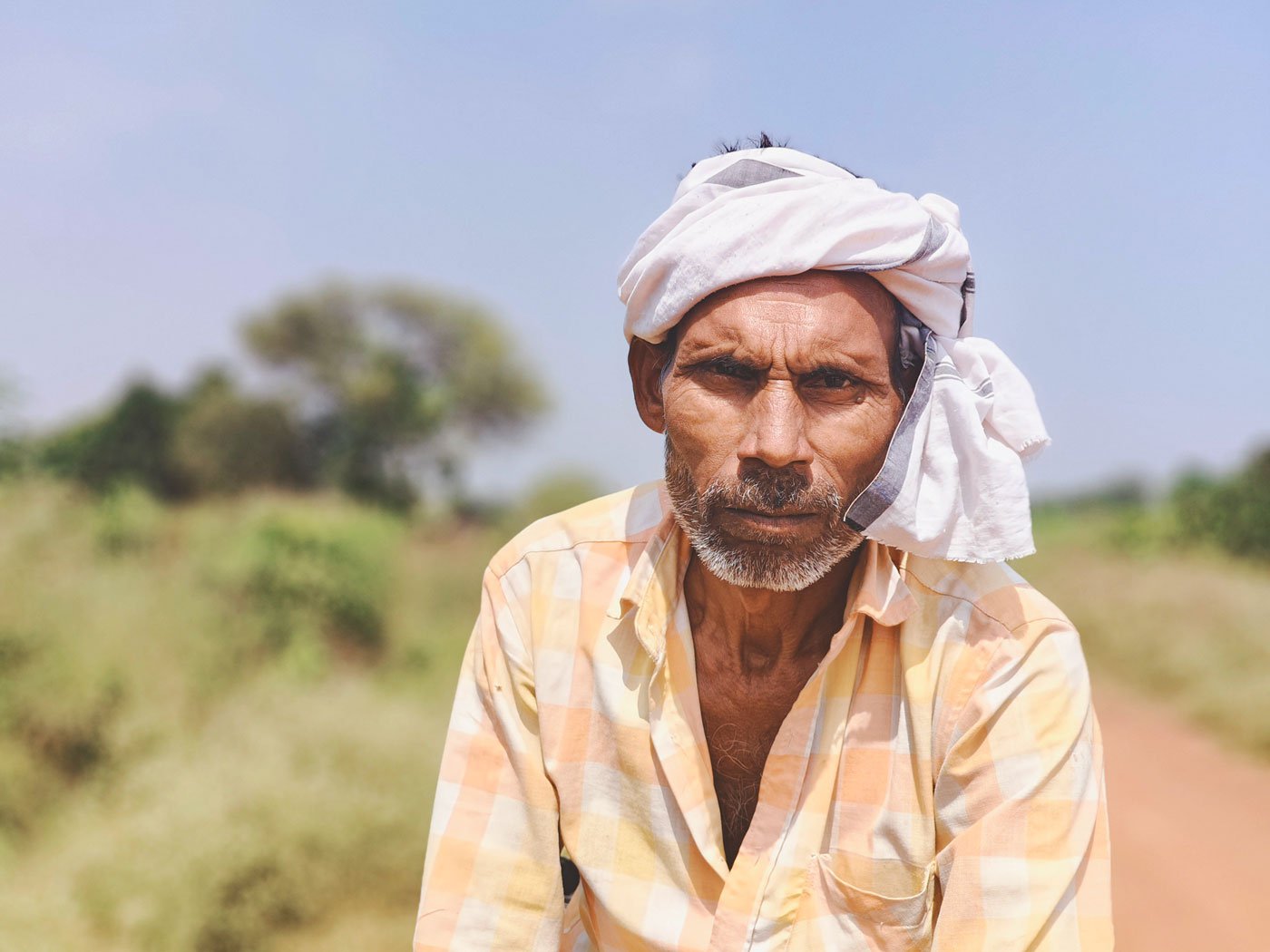
Ashok Jatav, a farm labourer from Khorghar, Madhya Pradesh was falsely declared dead and stopped receiving the Pradhan
Mantri Kisan Samman Nidhi
.
Multiple attempts at rectifying the error have all been futile
He is a labourer from the Jatav community, listed as Scheduled Caste in Madhya Pradesh, and he makes his living by toiling in other people’s farmlands for Rs. 350 a day. Ashok owns an acre of land himself where he cultivates food crops for self-consumption. His wife, Leela, is also a farm labourer.
“If we earn during the day, we get to eat at night,” Ashok says, taking a break from cutting soyabean at a farmland in his village in Shivpuri district. “Rs. 6,000 per year may not sound like a lot. But for us, any money is welcome. I have a 15-year old son. He is in school and wants to study further. And more importantly, I just don’t want to be dead.”
Ashok himself wrote to the Shivpuri District Collector to cancel his death certificate. At the next public hearing in the village, he even raised the issue with the gram panchayat, hoping to expedite the process. The panchayat officials visited him after the public hearing and told him he would have to prove he is alive. “I stood in front of them,” he says, bewildered, “what more proof do they need?”
He is not the only one stuck in this unusual and distressing situation.

Ashok was asked by the officials to prove that he is alive. ‘I stood in front of them,' he says, bewildered , 'what more proof do they need?’
Between the years 2019 and 2022, the CEO and the computer operator of the block panchayat – an intermediary local body between the gram panchayat and zila parishad – manufactured a scam where they killed off 26 people from 12-15 villages in Shivpuri district on paper.
According to the Chief Minister’s Sambal Yojana, the family of a person who dies in an accident gets Rs. 4 lakhs as compensation from the state government. The scamsters managed to claim that amount for each of the 26 people, collecting over Rs. 1 crore. The police have arrested the concerned people and charged them with Sections 420, 467, 468 and 409 – pertaining to cheating and forgery – under the Indian Penal Code.
“We have named Gagan Vajpayee, Rajiv Mishra, Shailendra Parma, Sadhana Chauhan and Lata Dube in the FIR,” says Vinay Yadav, Town Inspector, Shivpuri police station. “We are looking at more leads.”
Local journalists, who wish to remain anonymous, believe that further investigations could reveal more dead people in Shivpuri; they say a fair investigation could lead to bigger fish.
In the meantime, the ones declared dead have to deal with the consequences.
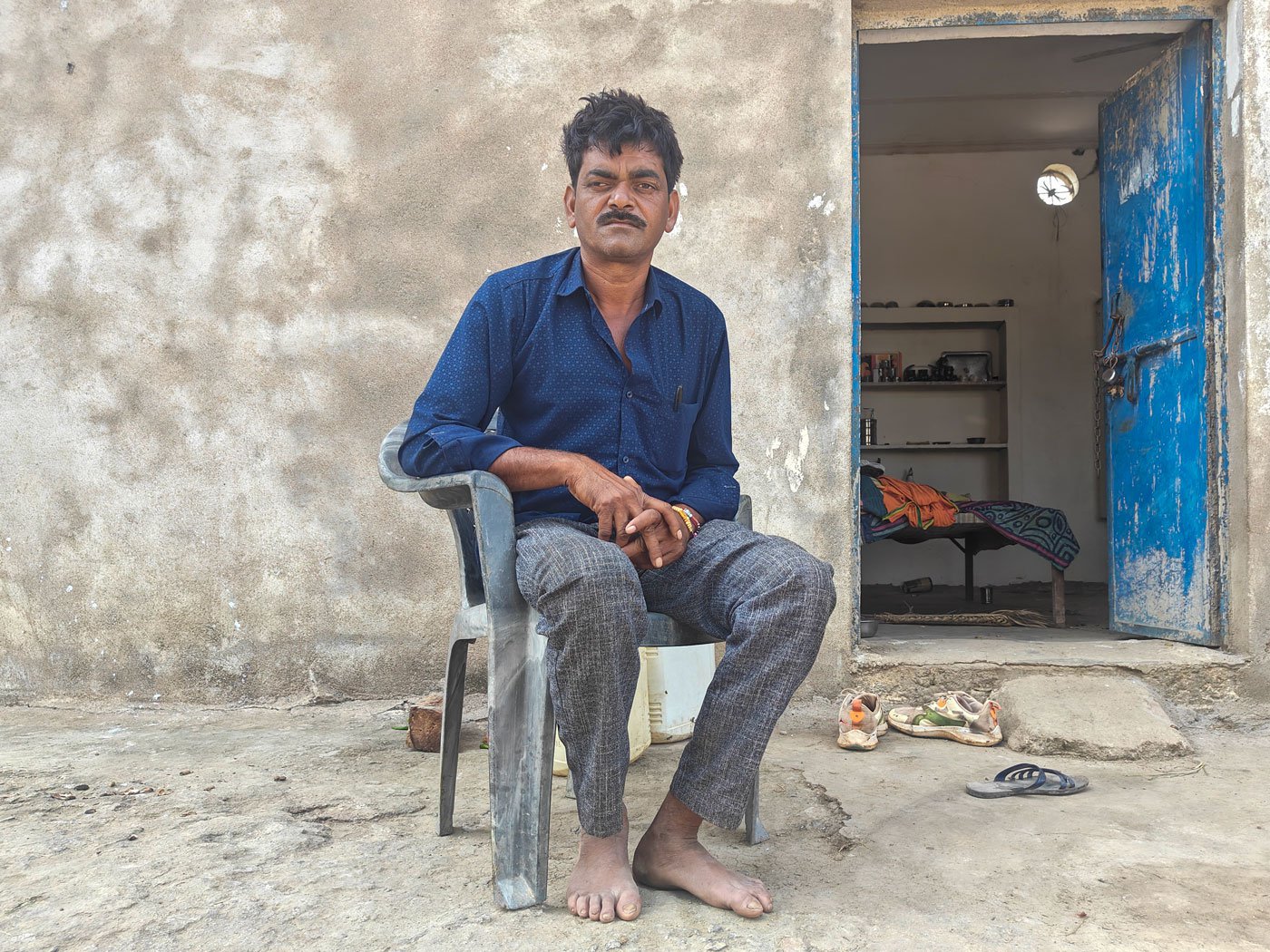
Dataram Jatav, another victim of the scam, says, ‘when you declare me dead, I lose access to all credit systems available to me’. In December 2022, the farmer from Khorgar could not get a loan from the bank to buy a tractor
Dataram Jatav, 45, a farmer with five acres of land in Khorghar, had his tractor loan rejected for the same reason. In December 2022, he needed money to procure a tractor for which he went to the bank – a straightforward process. Or so he thought. “Turns out it is difficult to get a loan if you are dead,” Dataram laughs. “I wonder why.”
For a farmer, Dataram explains on a serious note, government benefits, schemes and subsidised loans are like a lifeline. “I have a serious debt against my name,” he says, without specifying the amount. “When you declare me dead, I lose access to all credit systems available to me. How do I raise capital to cultivate my farmland? How do I get crop loans? I have no choice other than knocking on the doors of private moneylenders,” he adds.
The private moneylenders or loan sharks require no paperwork. In fact, they don’t even care if you are dead, but they do care about their high interest rates which can range from 4-8 per cent a month. Once farmers approach a loan shark, more often than not, they end up repaying the interest for years to come while the principal amount remains the same. Therefore, even a supposedly small loan ends up becoming an albatross around their neck.
“I am in deep trouble,” says Dataram. “I have two sons studying B.Ed and BA. I want to educate them. But because of this fraud, I was forced to make one bad decision and it has had an impact on my entire finances.”
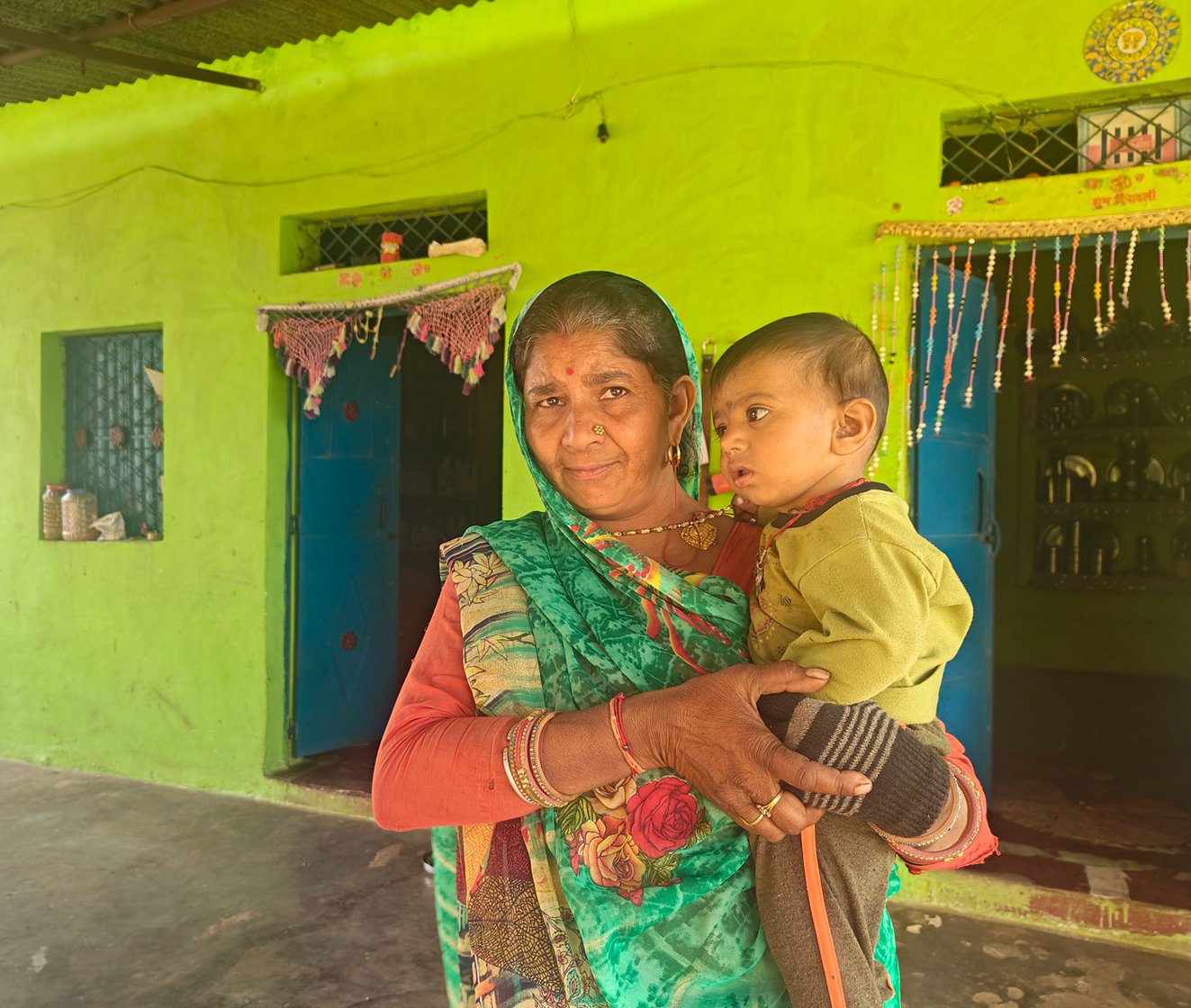

Left: Ramkumari with her grandchild in their house in Khorghar and (right) outside her home. Her son Hemant was a victim of the fraud. While they did not suffer financial losses, the rumour mills in the village claimed they had declared Hemant dead on purpose to receive the compensation. ' I was disturbed by this gossip,' says Ramkumari, 'I can’t even think of doing that to my own son'
For Ramkumari Rawat, 45, the consequences have been of a different kind. Her son Hemant, 25, was one of the victims of the fraud. Luckily, their 10-acre farmland is in the name of his father so there were no financial consequences.
“But people started talking about us behind our backs,” says Ramkumari, cradling her grandson in the verandah of her home in Khorghar. “In the village, people suspected we purposely killed our son on paper to get Rs. 4 lakhs. I was disturbed by this gossip. I can’t even think of doing that to my own son,” she adds.
For weeks, Ramkumari says, she struggled to come to terms with such distasteful rumours. Her mental peace had been all but shattered. “I was restless and cranky,” she admits. “I kept wondering how we could set this straight and shut people up.”
In the first week of September, Ramkumari and Hemant walked into the District Collector’s office with a written application asking him to look into the matter. “I told him I am alive,” Hemant says with a wry smile. “It felt strange walking into his office with that kind of an application. But we did what we could. What else is in our hands? We know we haven’t done anything wrong. Our conscience is clear,” he says.
Ashok, too, has given up on proving himself alive. As a daily wage labourer, his priority is to find work and put food on the table. “This is the harvest season so the work is regular,” he says. “At other times, it is infrequent. So, I have to go closer to the city to find work.”
Every now and then, he follows up when he can. He has called the Chief Minister’s helpline several times in vain. But he can’t afford to run around the government offices and lose his daily wage. “ Ab jab woh theek hoga tab hoga [ the problem will be fixed when it is fixed],” he says, upset, bemused, and working harder than ever. But still, a dead man walking.